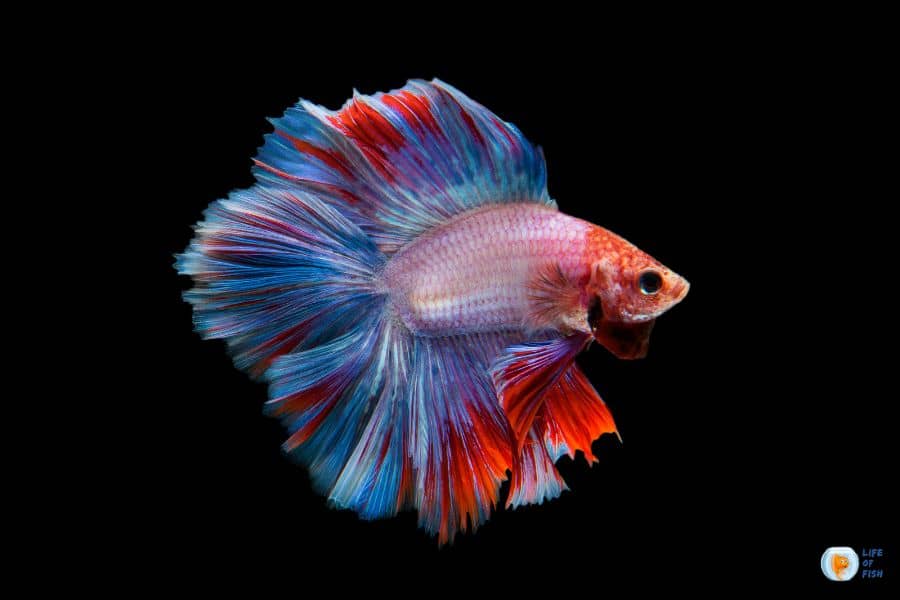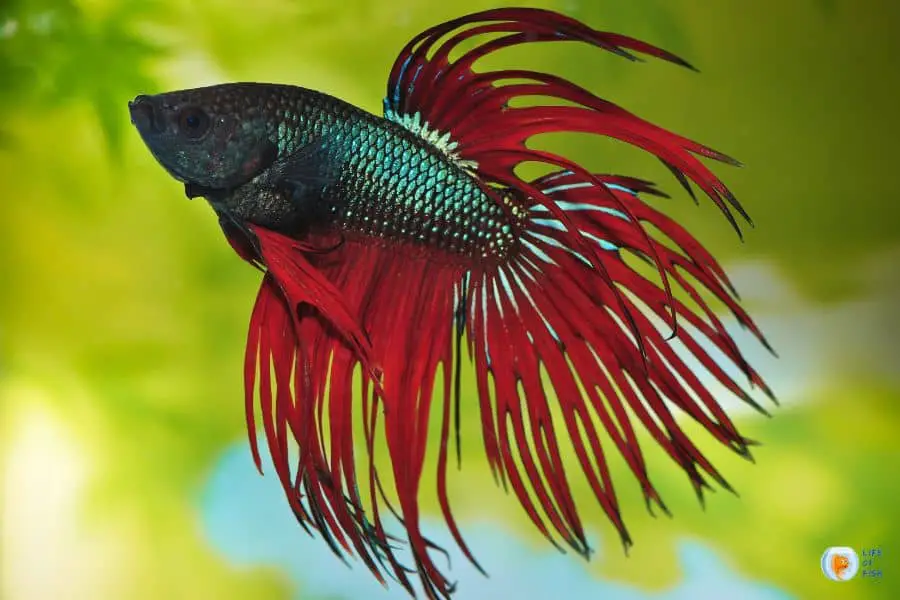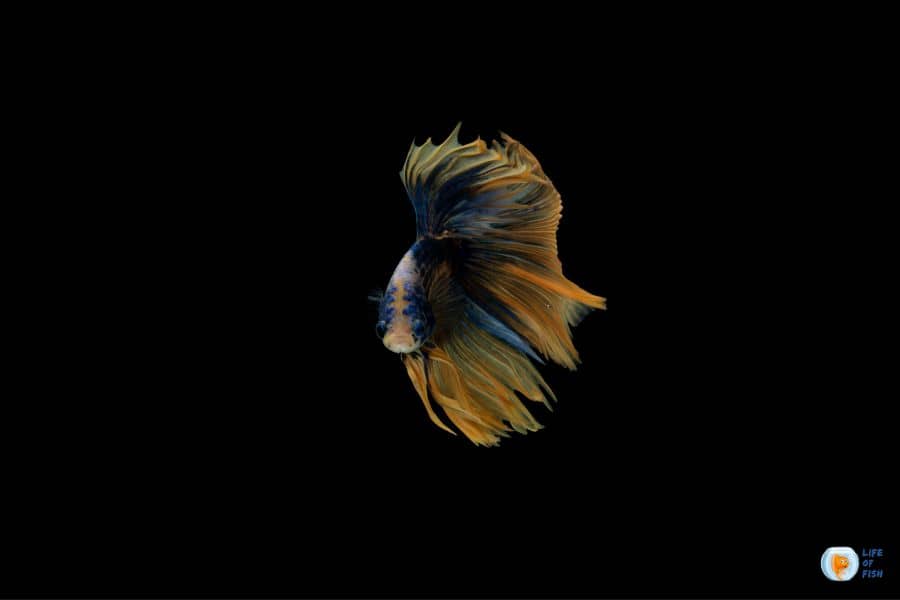Hi fish lovers! As a betta fish expert, I’m here to talk about one of the most common and serious ailments that can affect your beloved bettas: Betta Hole in the Head Disease. Parasites or bacteria can lead to this condition and can lead to ulcers, inflammation, and even death if left untreated.

It’s essential for any betta keeper to be aware of this disease. Then they can recognize the symptoms early on and provide proper care to their pet. In this article, we’ll look at what causes Betta Hole in the Head Disease, how it affects your fish, as well as ways you can prevent and treat it.
“Keeping your Betta Fish healthy is crucial! Our guide on Betta Fish Diseases can help you keep your fish happy and thriving. Click here to read more.” Betta Fish Diseases
What Is Betta Hole In The Head Disease?
Jump To
Hi there! I’m here to talk about betta hole in the head disease (HITH). It’s a common health issue that affects many betta fish. In this article, we’ll be discussing what HITH is, what causes it and how you can prevent it from happening.
So let’s start with the basics – what is HITH? Well, it’s an infection that forms on the head of your betta fish resulting in small holes or lesions appearing on their body. These often appear around their gills or eyes but can sometimes spread across their entire body if left untreated.
The holes are created by bacteria attacking the healthy tissue of your fish. Then results in weakened scales and skin. This makes them vulnerable to further infections as well as parasites and other illnesses such as fin rot and popeye.

What Causes Betta Hole In The Head
There are several reasons for Betta Hole In The Head Disease. Most notably poor water quality and inadequate nutrition. Poor water quality often results from improper tank maintenance or not changing the water frequently enough.
If a betta’s environment is too stagnant with old, dirty, oxygen-deprived water, their immune system will weaken making them more susceptible to diseases like hole in the head.
Nutritional deficiencies are also linked to betta hole in the head disease. Bettas that don’t receive proper nutrients may develop weakened immunity against infections and parasites resulting in hole in the head syndrome.
Improper diet and overfeeding can lead to internal issues like swim bladder disorder. It makes it difficult for bettas to maintain regular swimming patterns and cause stress leading to further health complications such as hole in the head.
What Are The Symptoms Of Hole In The Head In Bettas?
The telltale signs that your betta may have holes in their head is discoloration on their scales and fins near the head area. These can range from greyish-white patches to lesions with raised edges.
Your betta may also start scratching against objects more than usual due to an increase in itchiness caused by parasites in the water. In addition, you might spot small bumps forming around its eyes and mouth which usually indicate inflammation. Lastly, if left untreated your betta will experience appetite loss and weight loss which can lead to further complications.
How To Prevent Betta Hole In The Head
Preventing betta hole in the head is essential for a healthy fish. It’s important to keep your aquarium properly maintained and provide your betta with the best quality of water, food, and environment.
To ensure that your betta has the healthiest environment possible, regularly change its tank water, replace any chlorine or chloramine from tap water with a dechlorinator, check pH levels, and use an ammonia remover if needed.
Additionally, it’s crucial to feed your betta high-quality foods that are specifically designed for their dietary needs. This means avoiding overfeeding as well as feeding them pellets or flakes made up of additives like artificial colors and preservatives which may contribute to diseases such as hole in the head.
Taking preventative measures can go a long way toward keeping your betta healthy and happy! With proper care and maintenance, you can easily avoid many common fish diseases including hole in the head.

Can Hole In The Head Kill Your Betta Fish?
It’s a common misconception that betta hole in the head is something to be taken lightly. In fact, it can be one of the most deadly diseases your fish may face! Hole in the Head (HITH) is an affliction caused by poor water quality and lack of nutrition.
It results in lesions on the sides or top of your betta’s head. HITH has been known to cause death if left untreated. So it’s important to keep an eye out for any signs of infection and take action quickly if you suspect HITH.
From fin rot to gill flukes, there are many diseases that can put your beloved fish at risk. But few as potentially fatal as betta hole in the head. Not only does this insidious disease rob your pet of its vitality, but it also takes away from their aesthetic appeal. And unfortunately, due to its contagious nature, other tank inhabitants could become infected too.
Is Betta Hole In The Head A Contagious Disease?
Betta Hole in the Head is not a contagious disease. It’s caused by poor water quality and lack of nutrition. It can lead to an imbalance of electrolytes within the fish. If your betta has this condition, it’s important to make sure you are providing them with clean and healthy water as well as proper feeding habits.
The presence of Betta Hole in the Head usually indicates that there is something wrong with their environment or diet. In order to keep your betta healthy, regular water changes should be done along with maintaining appropriate levels of nitrates and ammonia in their tank.
Additionally, if they are being fed live food, such as mosquito larvae or bloodworms, then these need to be frozen before being given to prevent parasites from entering their system. Lastly, including supplements into their diet may help to improve their overall health.
Conclusion
Betta hole in the head is a serious health issue that can be fatal if left untreated. As betta fish owners, we have an obligation to monitor our pet’s health and take preventive measures to keep them healthy and happy. By providing your betta with clean water, good nutrition, and regular check-ups you will help ensure they stay disease free.
If you suspect that your betta fish may have this condition it is important to act quickly. There are treatments available but early detection is key to successful treatment and a full recovery! Take time to understand what causes hole in the head so that you can prevent it from occurring in the first place.
Read Next: Anchor Worm On Betta: Causes, Treatment and Care
Read Next: Betta Swim Bladder Disease: Causes And Treatments
